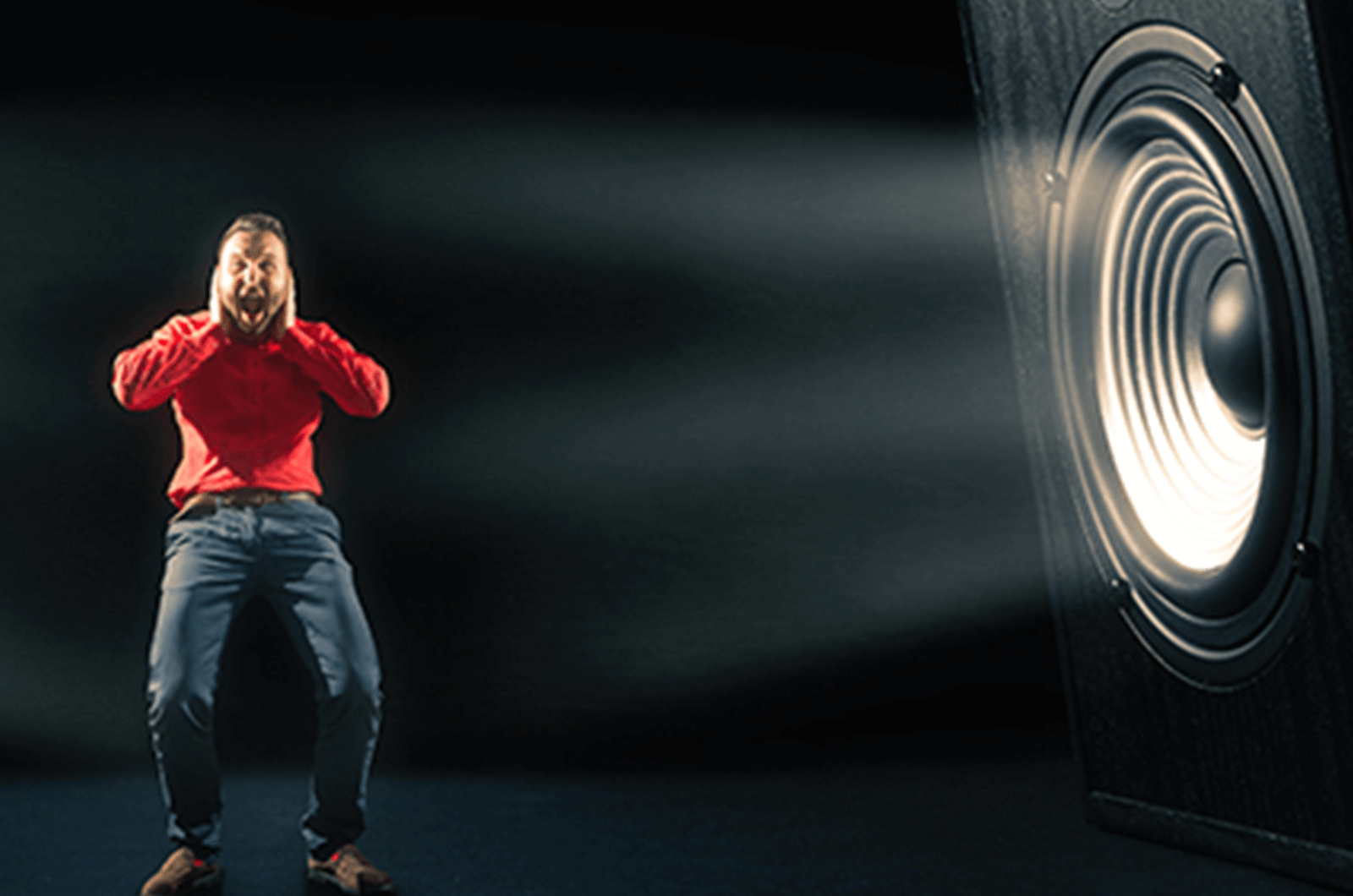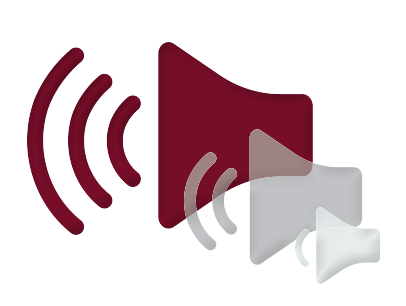
Toastmasters are familiar with the power of the human voice—but did you know that all sound affects you, often profoundly? Understanding how this works, and how to pay more attention to what our ears tell us, can transform lives. Sound is constantly affecting your happiness, effectiveness, and well-being.
In a noisy, fast-paced world, we often unconsciously suppress our awareness of the sound around us, perhaps because not much of it is pleasant.
The more conscious and discerning you become in your listening, the more you control the sound you create and the sound you consume.
The Four Effects of Sound
Exactly how does sound affect you so strongly? It does so in four ways.
Physiologically
Sound changes your breathing, heart rate, hormone secretions, brain chemistry, and even your brain waves. Hearing is your primary warning sense; your body will respond to a sudden or unexplained sound by creating a physical fight or flight response way faster than you respond to any visual input. Repeated exposure to loud noise causes hearing damage, while chronic exposure to even moderate noise increases blood pressure and the risk of heart attack or stroke. On the other hand, a gentle surf sound can act as a calming sedative—ideal for anyone who has trouble sleeping.
Psychologically
Music demonstrates this best: Think of your favorite happy or sad song and your feelings will follow. Perhaps that’s why there’s no human society on this planet that doesn’t have music. But music is not unique: Natural sound can affect our emotions too. Birdsong tends to create a sense of security and well-being, because we’ve learned over millennia that when the birds are happily singing, things are usually fine.
Cognitively
When you’re trying to think, unwanted conversation is distracting. You have no earlids, and you are programmed to decode language. Background conversations are impossible to ignore, and nobody can understand two people talking at the same time. The result: It’s impossible to think clearly when someone else is talking. That’s why open-plan offices have been shown to slash productivity by up to two-thirds!
Behaviorally
Loud noise tends to create stress, leading to behavior that’s less sociable and helpful to others. Fast-paced music speeds up eating, walking, and driving, while loud music in bars causes customers to drink faster and consume more. We will try to move away from sustained unpleasant sound if we can, so when stores and restaurants expect us to shop or eat in cacophonous surroundings, we often leave, or at least stay for a shorter time, which means we spend less and they lose out.
Why Noise Matters
Noise may be endemic, but we ignore it at our peril because it can have devastating effects.
In schools, poor acoustics damage health: Research indicates that chronic exposure to 65 dB (decibels) significantly increases risk of heart attack, so teachers may well be shortening their lives by working in this much noise year after year.
In hospitals, noise levels have been estimated by a Johns Hopkins study to be 8-12 times higher than the World Health Organization’s recommendations. Noise degrades the quality and quantity of sleep, which is our most important route to rapid recovery.
And in corporate offices, noise has been the No. 1 complaint ever since someone decided that open-plan was a one-size-fits-all solution. If you’re trying to concentrate in this environment, that person chatting behind you is taking up most of your auditory bandwidth and squashing your ability to listen to your inner voice. Many of us have felt the frustration that ensues. With an estimated 6 billion square feet of open-plan office in the world, the total loss of productivity is mind-boggling.
So noise is damaging our health, productivity, and enjoyment of life—but we’re not paying any attention. We urgently need to start designing spaces for (and with) our ears as well as our eyes. Here’s how.
How to Design With Your Ears
There are four steps to a space that sounds good, whether it’s your living room, a meeting room, a classroom, a hospital ward, an open-plan office, or a concert hall. If you control any of the spaces you frequently inhabit, these are the principles … and if you don’t, please pass them on to the people who do.
Step 1: Acoustics
Hard surfaces such as metal, stone, glass, and plaster all reflect back most of the sound that hits them. Meeting rooms with stone floors, polished wood tables, and glass walls may look impressive, but with plenty of confusing sound bouncing off all those hard surfaces, it’s no wonder people at the other end on conference calls often can’t understand a word.
We need to move from hard to soft. Any room in which speech matters should have reverberation time of well under one second, which can be achieved by installing absorbency. Consider using acoustic tiles or plaster for the ceiling, and old-fashioned carpet for the floors.
Step 2: Noise sources
Close your eyes and listen attentively in any room and you will quickly identify noise sources—heaters, air conditioning, IT cooling fans, and the like—and decide if you want to move them or muffle them. The most distracting sounds of all are alarms, ringing phones, and other people’s conversation. If you’re in an office with no widely accepted etiquette for open-plan offices, why not have a meeting and agree on rules for your workplace, with some sign to indicate “I’m thinking here, please don’t disturb!” or agreed-upon areas where quiet working is the rule.
Step 3: Sound system
When you need or want to introduce sound, for example public address announcements for life safety, or sound for entertainment or pleasure, make sure the system is of appropriate quality. Low-quality sound creates a low-quality environment.
Step 4: Content
Remember that even beautiful sound on top of noise just becomes more noise, so sometimes adding nothing is the best option. Most “background” music is very distracting (it is designed to be listened to after all!), so it’s ideal for when doing routine work, but not when trying to think. Nature-based sound such as birdsong and sounds of gentle water or wind has been shown to create healthier and more productive spaces.
Even if you can’t influence the sound around you, you can take steps to mitigate noise and choose silence. And don’t forget to use your vocal power to complain in restaurants and offices offering sensory overload. In an ever-noisier world, listen consciously and design your surroundings with your ears. Your health, happiness, and productivity will all benefit.
Julian Treasure is founder and chairman of audio branding consultancy The Sound Agency in the UK. His five TED Talks about sound and communication skills have been viewed over 100 million times. He is the author of Sound Business and How to Be Heard: Secrets for Powerful Speaking and Listening. Learn more at www.thesoundagency.com and www.juliantreasure.com.



 Previous
Previous
 What to Do with Noise
What to Do with Noise
 Previous Article
Previous Article

